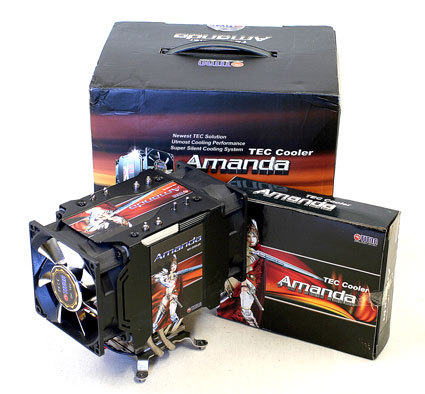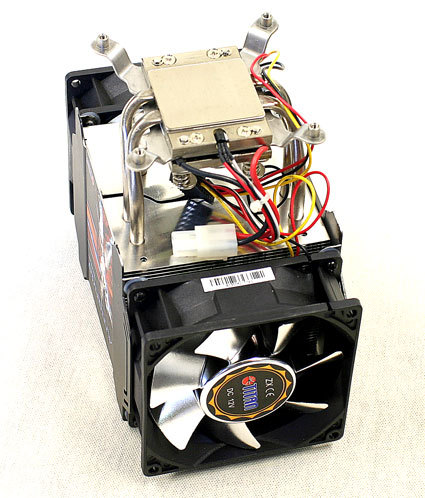Holiday Buyer's Guide 2006, Part 1: PC Components
Keep Cooler!
Cooling is a hot topic these days. Processors increasingly are sold in so-called "boxed" versions, which means that they come in a nice retail box that includes installation instructions as well as a decent processor cooler. By picking a retail processor kit you can be assured that the cooling solution works adequately for the CPU.
However, if you want to overclock your system - which might be very tempting, since you get more performance for free - you need to pay close attention to the CPU temperature. Usually you are forced to upgrade the processor cooling solution as soon as you overclock your processor by more than a few per cent. Noise levels might be another reason to upgrade: the boxed coolers do a good job, but there are more efficient and quieter products available. Let's have a look at some of them that proved their qualities in our test labs.
Titan TEC Amanda: Thermo-Electric Cooling
Titan's Amanda is a huge and very sophisticated processor cooler available for AMD's Socket AM2 (TTC-NP02TZ) and Intel's Socket 775 (TTC-NP04TZ) platforms.
Its secret is a design that combines two different cooling techniques. The Amanda is a low thermal resistance thermo-electric cooler (also known as Peltier cooler), but it uses a complex quad heat-pipe design to distribute heat to a large and fine aluminum heat sink structure. A copper heat pipe is used to attach to the processor, and two 92 mm fans take care of dissipating heat.
Since all of these elements require space, the dimensions of this products are tremendous: 140 x 95 x 170 mm. This might prevent its deployment in certain small computer cases or on compact motherboards, but both the cooling results and the resulting noise levels are very impressive: at a maximum rotation speed of 1,500 RPM, this product will never be loud. From our experience, an average graphics card makes more noise!
If you don't care about the bulk and mass of this cooler - it weighs in at over two pounds - this is an amazing piece of technology for your high-end PC, and it is especially well-suited to overclocked processors. It won't, however, make much of a difference if you're looking for a low-noise, low-power PC.
Get Tom's Hardware's best news and in-depth reviews, straight to your inbox.
Current page: Keep Cooler!
Prev Page Processors: Fast Or Furious? Next Page Sunon Waturbo: Compact Liquid Cooling For Your CPU
Patrick Schmid was the editor-in-chief for Tom's Hardware from 2005 to 2006. He wrote numerous articles on a wide range of hardware topics, including storage, CPUs, and system builds.


